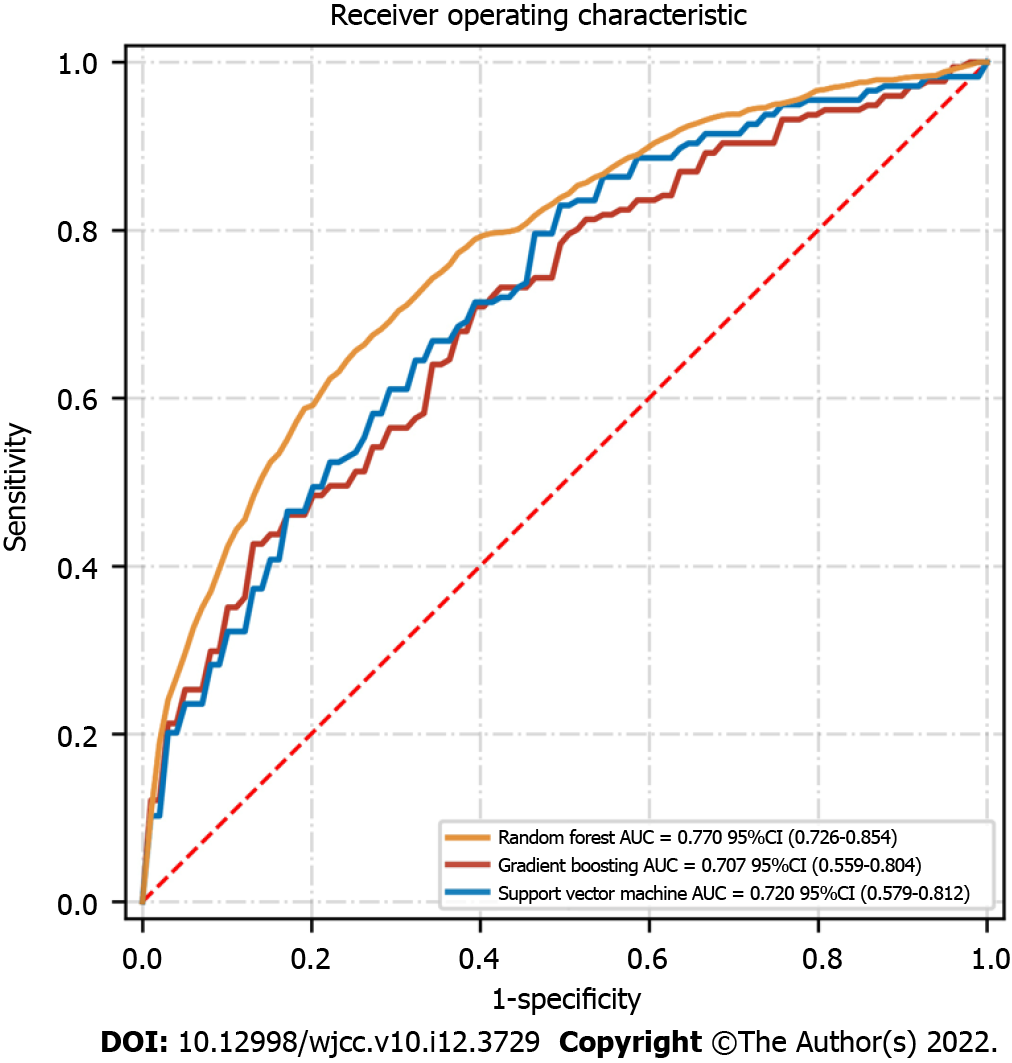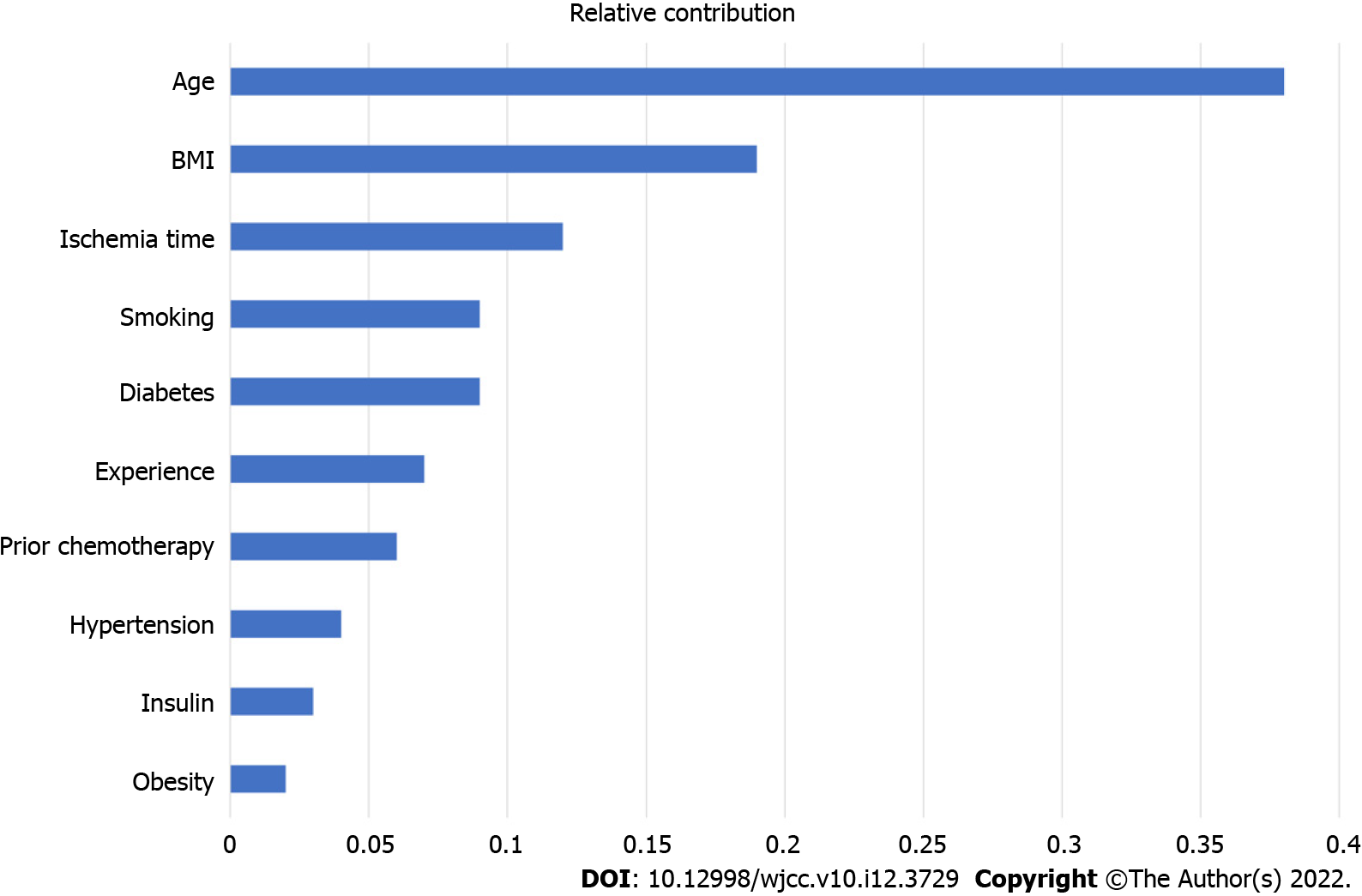Copyright
©The Author(s) 2022.
World J Clin Cases. Apr 26, 2022; 10(12): 3729-3738
Published online Apr 26, 2022. doi: 10.12998/wjcc.v10.i12.3729
Published online Apr 26, 2022. doi: 10.12998/wjcc.v10.i12.3729
Figure 1 Receiver operating characteristic curve of the machine learning models in the testing set.
AUC: Area under the curve; CI: Confidence interval.
Figure 2 Ranked variable value of the random forest algorithm.
The variables were ranked based on the average distance from the split branch to the tree root in the binary tree. The line length in the graph measures the variable importance in the random forest model. The top ten variables in the random forest model were age, body mass index, ischemia time, smoking, diabetes, experience, prior chemotherapy, hypertension, insulin, and obesity. BMI: Body mass index.
- Citation: Shi YC, Li J, Li SJ, Li ZP, Zhang HJ, Wu ZY, Wu ZY. Flap failure prediction in microvascular tissue reconstruction using machine learning algorithms. World J Clin Cases 2022; 10(12): 3729-3738
- URL: https://www.wjgnet.com/2307-8960/full/v10/i12/3729.htm
- DOI: https://dx.doi.org/10.12998/wjcc.v10.i12.3729










